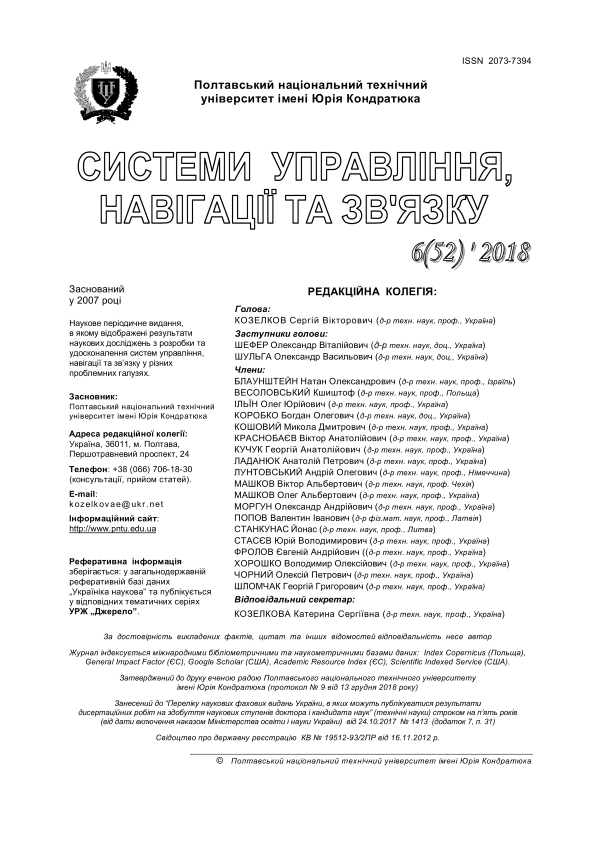PRINCIPLES OF AUTOMATED CONSTRUCTION AND USE OF A TEMPORAL KNOWLEDGE BASE TO SUPPORT DECISION-MAKING ON ENTERPRISE MANAGEMENT
DOI:
https://doi.org/10.26906/SUNZ.2018.6.122Keywords:
temporal knowledge base, temporal rules, sequence of states of the control objectAbstract
The subject matter of the article is the processes of automated construction and use of a database of temporal knowledge to support enterprise management in the face of uncertainty, which arises as a result of incomplete information about the state of the enterprise as an object of management. The goal is to develop a concept for the automated construction of a temporal knowledge base containing context-sensitive knowledge of management processes in the information system, which provides decision support at the tactical management level, as well as the ability to support execution at the strategic management level. Tasks: development of principles for the automated construction of a temporal knowledge base; introduction of the developed principles in the form of the concept of using a temporal knowledge base to support enterprise management. The methods used are: methods for constructing temporal rules and temporal knowledge bases, as well as methods for probabilistic inference. The following results were obtained. The principles of the automated construction and use of the knowledge base to support enterprise management in conditions of uncertainty have been developed. On the basis of the developed principles, the concept of building a temporal knowledge base and implementing logical inference for solving unstructured and partially structured tasks is proposed. Conclusions. The scientific novelty of the results is as follows: The principles of automated construction and use of a temporal knowledge base for decision support in an information system are proposed, which differ in taking into account temporal dependencies for both the management process and the control object, as well as the integration capabilities of dependencies at different levels of organizational hierarchy. The developed principles provide the possibility of constructing a set of probabilistic solutions of partially structured tasks at the tactical level and unstructured tasks at the strategic level in the context of incomplete information about external influences and the state of the enterprise.Downloads
References
Kalynychenko, O., Chalyi, S., Bodyanskiy, Y., Golian, V., Golian, N. (2013, September). Implementation of search mechanism for implicit dependences in process mining. 2013 IEEE 7th Int. Conf. on Intelligent Data Acquisition and Advanced Computing Systems (IDAACS). IEEE. Available: https://doi.org/10.1109/idaacs.2013.6662
Shin J., Wu S., Wang F., De Sa C. Zhang С, R´e С. (2015). Incremental Knowledge Base Construction Using DeepDive. 41th International Conference on Very Large Data Bases (VLDB). Vol. 8(11).
Левикін В. М, Чала О. В. (2018). Розробка представлення причинно-наслідкових залежностей для бази знань системи процесного управління. Вісник Національного технічного університету «Харківський политехнический институт». Серія: Системний аналіз, управління та інформаційні технології, 21 (1297), 48-53.
Чала О. В. (2018). Побудова темпоральних правил для представлення знань в інформаційно-управляючих системах. Науково-технічний журнал, Сучасні інформаційні системи, Том 2, № 3. С. 54-59.
Chala O. (2018). Models of temporal dependencies for a probabilistic knowledge base. Econtechmod, 7/3, 53 – 58.
Levykin V., Chala O. (2018). Method of determining weights of temporal rules in markov logic network for building knowledge base in information control system. EUREKA: Physics and Engineering, 5(18), 3-10.
Levykin V., Chala O. (2018). Method of automated construction and expansion of the knowledge base of the business process management system. EUREKA: Physics and Engineering, 4, 29-35.
Levykin V., Chala O. (2018). Development of a method of probabilistic inference of sequences of business process activities to support business process management. Eastern-European Journal of Eenterprise Technologies, 5/3(95). С. 16-24. DOI: 10.15587/1729-4061.2018.142664.
Chala O. (2018). Method for detecting anomalous states of a control object in information systems based on the analysis of temporal data and knowledge. EUREKA: Physics and Engineering, 6, 28-35. DOI: 10.21303/2461-4262.2018.00787.




